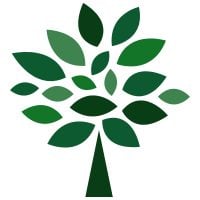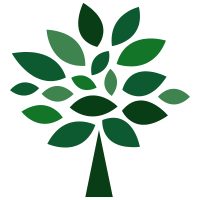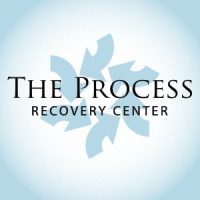Nashua Children's Home
Drug Rehab Center in Nashua, New Hampshire
Nashua Children's Home is a licensed and accredited facility that offers a variety of evidence-based and holistic treatment programs for children and adolescents struggling with addiction, substance abuse, and co-occurring mental health disorders.
About Nashua Children's Home in New Hampshire
Nashua Children's Home is a leading provider of treatment and residential care for children and adolescents in Nashua, New Hampshire. They are a licensed and accredited facility that offers a variety of therapeutic and preventative programs for individuals struggling with addiction, substance abuse, and co-occurring mental health disorders. Nashua Children's Home employs a team of highly trained experts who specialize in providing an individualized treatment experience for each of their clients.
Nashua Children's Home offers an integrative approach to addiction treatment, focusing on both evidence-based therapies and holistic healing. Their services include individual and group therapy, psycho-educational classes, family therapy, experiential activities, and 12-Step programming. They also provide educational opportunities and support services to help their clients make informed decisions about their recovery and equip them with the resources they need to live a healthier and more fulfilling life.
In addition to the services mentioned above, Nashua Children's Home has achieved notable accreditation, licensing, and awards. In 2014, they were awarded the Outpatient Substance Abuse Clinic License from the New Hampshire Department of Health and Human Services. In 2016, they were recognized as a "Center of Excellence" by the Commission on Accreditation of Rehabilitation Facilities (CARF). They are also accredited by The Joint Commission, a widely respected accreditation body in the healthcare industry.
Genders
Ages
Modality
Additional
Conditions and Issues Treated
Dual Diagnosis therapy is considered more successful than traditional rehab methods because it treats the addiction and the underlying mental health disorder simultaneously. This comprehensive approach gives Nashua, NH patients the best chance for long-term recovery. If the patient does not receive treatment for both conditions, they are more likely to relapse.
Levels of Care Offered
This center offers a variety of custom treatment tailored to individual recovery. Currently available are Dual-Diagnosis, Inpatient, with additional therapies available as listed below.
Inpatient facilities offer a complete rehab program where the patient stays for an extended period. This allows the staff to monitor the patient on a round-the-clock basis and provide medical assistance if needed.
A significant benefit of inpatient rehab is that it allows for a safe environment for treatment. The patient doesn’t have access to drugs or alcohol, and they’re surrounded by people that want them to succeed and change their lives. Treatment starts with detox and behavioral therapy, followed by group therapy and family involvement.
Therapies & Programs
Individual Therapy is a crucial component of addiction recovery. Therapists work with patients to identify the root of their addiction and figure out how to better handle the issues that led to them using drugs. Individual Therapy is one on one sessions where people meet with their therapist. Individual therapy provides a safe space for people to open up and discuss personal and sensitive topics which they may not feel comfortable discussing in a group setting.
In this type of therapy, therapists can develop specific solutions for each patient, which helps speed up their recovery process. In addiction recovery, therapy is a crucial part. It allows patients to go deep into their core issues and discover how those problems can be better handled now. Therapy can be performed in individual sessions as well as group settings. In individual therapy for addiction, the patient meets with the therapist one-on-one to focus on the underlying issues of addiction and come up with solutions to prevent future abuse.
Addiction can take a heavy toll on relationships, damage the trust and intimacy that was once there. Couples therapy at Nashua Children's Home helps to rebuild the trust and intimacy that has been damaged. An intimate relationship with a drug addict is not healthy for children or anyone in the family. Therapist help to rebalance family roles and create a healthier environment after rehab in Nashua, NH.
Family therapy is a crucial part of drug treatment and getting sober. It is one of the most effective ways to help addicts stay on the path to long-term sobriety. One of the most important parts of family therapy is the relapse prevention plan. During treatment, therapists and doctors will often sit down with the addict and their family to develop a plan if the addict ever feels like they want to use again. This plan should involve steps the addict and family can take together to prevent them from relapsing in the future.
An addict’s family can play a vital part in helping them to avoid relapse because they can spot the warning signs and help them get back on track before it becomes too much of a problem. Family therapy is one of the most effective ways to help addicts stay on the path to long-term sobriety.
Group Therapy is employed by drug treatment centers like Nashua Children's Home to provide the recovering addict with a platform to talk about their feelings and experiences. It also provides for an opportunity to learn from other addicts who have successfully overcome their addiction. It is recommended that all group members be recovering addicts for this type of therapy to work.
This type of therapy involves the use of a variety of therapeutic techniques to help addicts recover from past traumas that might have triggered their substance abuse. During these sessions, therapists will work with the addict to address painful memories and learn how to cope effectively with stressors as they arise.
During these types of sessions, therapists will typically focus on three main goals:
- Identifying and expressing painful emotions associated with past traumas.
- Reducing the effects of stress on an addict’s life by developing more effective coping mechanisms.
- Developing healthy ways of thinking about stressful situations that can help addicts avoid substance abuse issues in the future.
This type of therapy is typically used in conjunction with other types of addiction treatment services. By identifying and dealing with the root cause of addiction, most addicts can overcome their cravings and prevent relapse once they leave rehab.
Many different types of addiction treatment services exist to help addicts safely get sober, but it’s important for recovering individuals to find a therapist or support group that will help them address the root cause of their addiction.
Dialectical behavior therapy (DBT) is a type of cognitive behavioral therapy that is focused on helping those with problematic behaviors caused by intense emotions and thoughts control and regulate their emotions and behavior.
Dialectic Behavior Therapy is beneficial for:
- People who have chronic suicidal thoughts and behaviors
- People who have chronic drug cravings
- People who have difficulty establishing and maintaining personal relationships
- People who have a mental disorder such as Borderline Personality Disorder
- People who have experienced trauma in their life
Cognitive Behavioral Therapy (CBT) is an approach and method in psychotherapy. Nashua Children's Home asks people to investigate how their thoughts, including habitual, harmful, and inaccurate ways of thinking, affect behaviors. CBT is based on the idea that rigid, inflexible ways of thinking cause people to have a limited ability to cope with stress, which leads to emotional distress.
Likewise, CBT helps people identify maladaptive behaviors and replace them with more positive behaviors. It makes you look at the way you perceive something and ask: Is this a realistic belief? CBT asks people to look at the role of behaviors and emotional responses and how they may be distressing in one’s life. The goal of CBT is to change the way people think and behave to achieve a more balanced, healthier lifestyle.
Moreover, CBT has been shown to reduce some types of anxiety disorders, depression, and symptoms related to thoughts or actions that are considered harmful.
Patient Experience
Experiential Therapy at Nashua Children's Home
Experiential therapy at Nashua Children's Home includes helping people work through emotional disorders by participating in events in real-time. It moves away from conventional talk therapy to discuss their concerns and emotions by making patients play roles or use props. It allows people to handle trauma and feelings healthily, reducing the need to resort to alcohol and substances in Nashua, NH.
Additional Details
Specifics, location, and helpful extra information.
Nashua, New Hampshire 3064 Phone Number(603) 883-3851 Meta DetailsUpdated November 25, 2023
Staff Verified
Nashua Children's Home Patient Reviews
There are no reviews yet. Be the first one to write one.
Nashua, New Hampshire Addiction Information
Opioids such as fentanyl, heroin, and prescription opioids form the largest drug threat in New Hampshire. More than 80% of all New Hampshire treatment centers admissions were related to one or more of these three drugs. Opioids such as fentanyl, heroin, and prescription opioids form the largest drug threat in New Hampshire. Since 2002, rates of alcohol dependency have also been among the highest in the country. In 2015, almost 15% of the residents were admitted to treatment centers for alcohol abuse.
The addiction problem in Nashua, NH, is a serious issue. Poverty can also be a factor for children who grow up in households where both parents are addicts. In 2012 there were 330 arrests for the sale of heroin and morphine. In 2012, there were 1,459 emergency room visits due to illegal drug use in Nashua, NH. The common drug treatment program in Nashua is an outpatient program.
Treatment in Nearby Cities
- Laconia, NH (52.3 mi.)
- Canterbury, NH (39.3 mi.)
- Hampstead, NH (16.9 mi.)
- Woodsville, NH (99.4 mi.)
- Greenland, NH (37.7 mi.)
Centers near Nashua Children's Home
The facility name, logo and brand are the property and registered trademarks of Nashua Children's Home, and are being used for identification and informational purposes only. Use of these names, logos and brands shall not imply endorsement. RehabNow.org is not affiliated with or sponsored by Nashua Children's Home.







